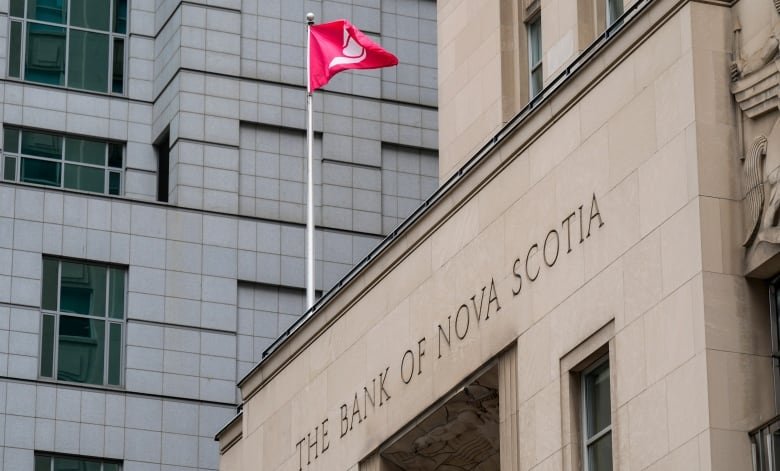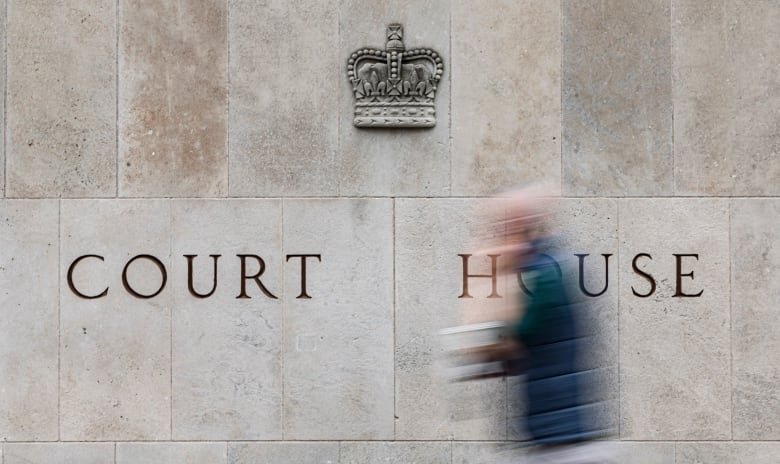A major Canadian music funder alleges that nearly $10 million of federal government money was stolen from its bank account, in a case that will go before a judge in Toronto on Friday morning.
The Foundation Assisting Canadian Talent on Recordings (FACTOR) says in documents filed with the Ontario Superior Court of Justice Commercial List that someone outside the organization gained access to its Scotiabank account and took nearly $9.8 million in June, representing almost one-fifth of its annual funding to Canada’s music industry.
The non-profit alleges the funds were wired to a numbered company in Quebec, and then to a cryptocurrency platform, where the money was converted to crypto and used to buy crypto-mining hardware.
FACTOR’s lawyers say in court documents that the alleged fraud occurred “as a result of gross negligence on the part of Scotiabank,” noting there were “multiple red flags” that should have alerted the bank to the unauthorized transfer.
FACTOR is asking the court to direct Scotiabank and the customers allegedly involved in the transaction to refund the money, while the bank and the Quebec man behind the numbered company are pushing for a formal discovery process to reveal pertinent documentation, which would take much longer and could entail a jury trial.
What does FACTOR do?
Founded in 1982, FACTOR supports Canada’s English-language music industry by offering a wide range of grants for musicians, record labels, event organizers, awards shows and others in the industry, with funding from the federal government and private radio broadcasters.
The organization has helped artists achieve success beyond Canada’s borders — from rising stars like tenor and composer Jeremy Dutcher and musician Debby Friday to international success stories like Nickelback and Tegan and Sara, who were buoyed by funding early in their careers.
In the 2022-23 fiscal year, FACTOR offered more than $51 million in total funding to more than 3,000 projects across Canada.
Ebonnie Rowe, founder of Honey Jam, a non-profit artist development program, said her jaw dropped when she heard about the missing funds.
“I was stunned, shocked. I don’t think any of us have ever heard of something like this happening at this magnitude from an organization like this,” she said.
Honey Jam, which works with emerging female musicians and has been credited with helping discover and develop such artists as Nelly Furtado, Jully Black and Haviah Mighty, has received FACTOR funding for the last 16 years.
Rowe said the organization’s support is essential for arts and culture in Canada — and for some artists, it’s their only source of financial support.
“We are all praying that it comes to a resolution, that the money is recovered and that all will be well in the end,” she said.
How did this happen?
The court filings state that FACTOR’s accountant, Marna Aianova, was the only person with official access to log in to the organization’s bank account.
But in January, someone outside of FACTOR gained access using a third-party email address with the name of a part-time FACTOR chief financial officer.
The filings allege Scotiabank did not alert FACTOR about the new user, despite the user having an “outlook.com” email address rather than a “factor.ca” address and accessing the account multiple times.
In early June, the Department of Canadian Heritage made a $14.3-million deposit into the account, of which FACTOR moved $5 million into an investment account.

On June 12, the unknown user then moved $9.8 million into a different Scotiabank account belonging to a numbered company.
According to the court filings, $9.4 million of that was then transferred to an ATB Financial account belonging to cryptocurrency platform VirgoCX. The following day, it was converted into cryptocurrency to pay overseas suppliers for crypto-mining hardware.
The filings allege that a Quebec man named James Campagna owns the numbered company and arranged the hardware sale.
Campagna denies being behind the theft, however, saying in court documents that the unknown user contacted someone affiliated with his company to order 2,800 crypto-mining machines, and that he had no reason to question the order.
The bank recovered the $379,000 that remained in Campagna’s account and returned it to FACTOR on June 21. FACTOR said it promptly reported the alleged theft to the Toronto Police Service and the Canadian Anti-Fraud Centre.
A Toronto police spokesperson confirmed to CBC News that its financial crimes unit is investigating but said it could not provide any further information.
Canadian Heritage spokesperson Ines Akué said in an emailed statement that the department ensures FACTOR’s agreements with third-party administrators and financial transfers “contain appropriate liability and indemnification clauses.”
“FACTOR has a long and positive track record in the music sector and we remain confident in the diligent management of its financial accountabilities,” Akué said.
What is being argued?
FACTOR is arguing that Scotiabank and VirgoCX should return the remaining $9.4 million. A spokesperson for the organization declined to comment but referred CBC News to a statement posted online Tuesday.
The statement argues Scotiabank should have alerted FACTOR about abnormal activity in its account, saying the wire “was more than 300x larger than any wire the organization has ever done, executed by an unauthorized user.” FACTOR says the transfer was “highly unusual, suspicious, and illegal.”
FACTOR says it retained expert investigators and forensic teams for four independent investigations that all found no evidence that FACTOR or any of its employees, agents or contractors “were in any way responsible” for the money going missing.

Its court filings note that Scotiabank has a guarantee on its website that it will “fully reimburse” clients if they lose money due to unauthorized activity.
A Scotiabank spokesperson declined to comment because the case is before the courts.
According to filings, whether the bank’s “guarantee” applies in this situation “is a complex issue” that will require extensive discovery, investigation and evidence.
The court will be asked to determine how the transfer was carried out, how the unknown person got access to FACTOR’s account and whether FACTOR complied with its digital security obligations.
In her report released Tuesday, Auditor General Karen Hogan says a single point of contact is needed to allow Canadians to report instances of cyberattacks and cybercrime. Hogan says the current system for reporting, involving multiple federal organizations, can lead to breakdowns in response and tracking.


